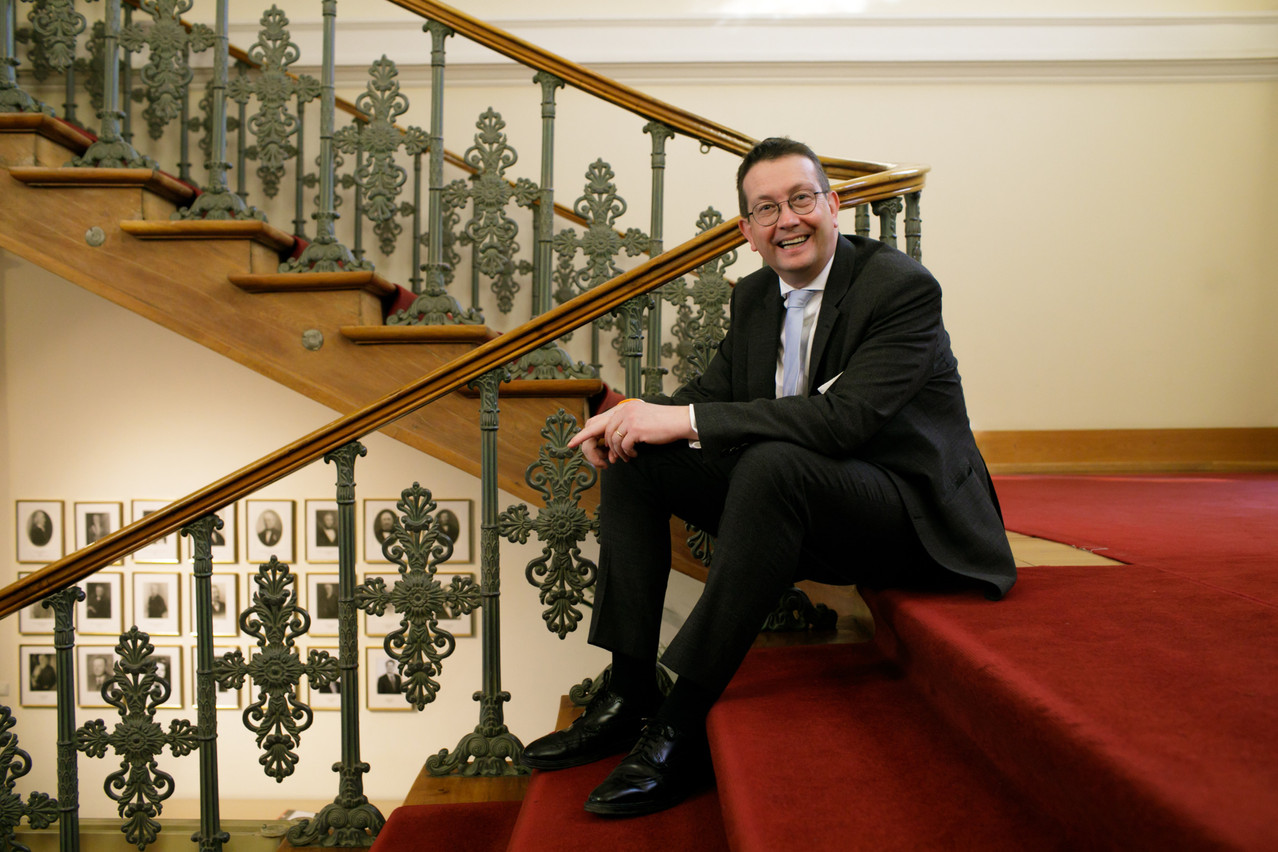When (CSV) was first elected to the city’s council in 2011, the grand duchy’s capital counted fewer than 100,000 residents. It has since mushroomed to nearly 133,000, with people from 169 nationalities calling the city home. The share of foreign residents has also steadily risen and is now at 71%.
“The city has grown enormously,” Bauer said in an interview. “You hear a much bigger variety and mix of languages.” But one language is emerging as a common denominator out of the city’s melting pot: English.
With no city-specific data available, information from the education ministry shows that across the country, 98% of Luxembourg’s population speaks French, followed by 80% speaking English, 78% German and 77% Luxembourgish.
You hear a much bigger variety and mix of languages.
French is still the most commonly spoken language at work--no doubt linked to the roughly 150,000 cross-border commuters from France and French-speaking Belgium working in the country--followed by English, Luxembourgish and then German.
“As the City of Luxembourg, we can only put our best foot forward,” said Bauer, adding that it was not up to the commune to dictate businesses on what languages to use.
While Luxembourg residents have long had a gripe with speaking French at their local bakery, for example, expats have been known to complain about the lack of English spoken.
“The market also makes its own rules,” Bauer said, adding that shops and restaurants unable to welcome customers in English risk losing out on a significant client base. “It’s perhaps not the best approach,” he said.
Luxembourgish not enough
City hall publishes the monthly City Magazine in French and English, town hall meetings come with simultaneous interpretation services, staff at the citizens’ office (Bierger-Center) speak English, wedding ceremonies are held in the language, more sports and cultural activities are available in English.
“It’s about giving everyone the feeling that they are welcome in the city,” Bauer said, adding that there is a “significant demand” for services and activities offered in English, which the city is trying to meet.
And yet, English must co-exist with other tongues. International films at the Cinémathèque are subtitled variously in French and English, for example. The country’s mother tongue must also have its place. “Luxembourgish will always be our national language,” the integration alderman said.
The government in 2017 adopted a strategy to promote the Luxembourgish language and parliament in 2018 followed this up with a legal framework to implement measures in the strategy. This included, for example, the creation of the “Zenter fir d’Lëtzebuerger Sprooch”, the centre for the Luxembourg language.
“It’s important that we are multilingual,” Bauer said. “But people interested in cohesion and successful integration in our country must be aware that with Luxembourgish alone we don’t stand a chance of giving people the feeling of being welcome and belonging.”
The burden for Luxembourg City is perhaps greater than that of other communes with smaller foreign populations. “The City of Luxembourg is the port of entry for most people into the country,” Bauer said. “There’s a critical mass here.”
Election challenges
The linguistic challenges will carry over into this year’s communal elections in which non-nationals are able to vote, but also run as candidates.
So far, only around 6.7% of eligible foreigners have registered to vote in the commune. “It’s an important moment,” Bauer said, with citizens electing the leadership of the municipality for the next six years.
In the last local election year, 2017, there were 37,706 Luxembourg residents in the city compared to 90,698 foreigners. While 27,722 Luxembourgers went to vote--with voting compulsory for passport holders--only 6,677 foreigners turned out.
We aren’t elected to be there only for Luxembourgers.
With 12,653 votes, mayor (DP) was elected to office by less than 10% of the people living in Luxembourg City, although this includes children and others not eligible to vote at the time.
Voting has since been made easier after a five-year residency requirement was abolished last year. More than 75,000 non-nationals are eligible to cast their ballot this year.
The commune plans to send a letter in multiple languages, including English, to non-nationals urging them to register to vote, among other activities. “It’s about them as much as all other citizens,” he said. “We aren’t elected to be there only for Luxembourgers. If we make policies, it’s for everyone.”


